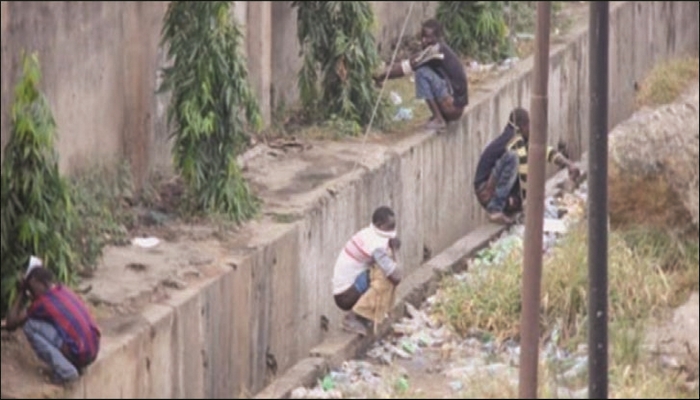
At least one-third of Nigerians drink contaminated water while 46 million people still practise open defecation, a report by the United Nations Children’s Fund and the Federal Ministry of Water Resources has shown.
The report, titled, “Water, Sanitation, Hygiene National Outcome Routine Mapping 2019”, points out that at least 167 million homes do not have access to handwashing facilities.
The report, which was released last week, was said to have done in collaboration with the National Bureau of Statistics (NBS)and was completed just before the outbreak of the COVID-19 in March.
UNICEF said this latest report on Nigeria revealed that “the amount and quality of water for individual use is lower than the required standard. The average amount of water each person receives in Nigeria is 9 litres per day. The minimum acceptable range is between 12 and 16 litres per day.”
According to the UN agency, the report is based on surveys conducted across the country, the results of which showed that the number of people using essential sanitation services has increased by 6.6 million people, a progress “mostly driven by people converting from general toilets to private toilets within their homes.”
In 2019, the Nigerian government began a campaign to end open defecation and promised that it was committed to ending the practice by 2025.
“The data shows us that there is still more work to be done to ensure that all Nigerians have access to adequate and quality water and hygiene services, said the Minister of Water Resources, Suleiman Adamu.
“While we have made some progress – most notably in the number of households accessing basic water services – we cannot rest on our laurels. We will be looking at our overall strategy, based on these findings, to see how we can strengthen all areas of the water, sanitation and hygiene in Nigeria – including making faster progress in ending open defecation across the country.”
The drinking of contaminated water by Nigerians continues despite the budgetary allocations made to the Ministry of Water Resources to ensure that safe and potable water is made available to all citizens.
According to the federal 2020 budget, the ministry is allocated more than N37 billion to handle its capital projects nationwide.






